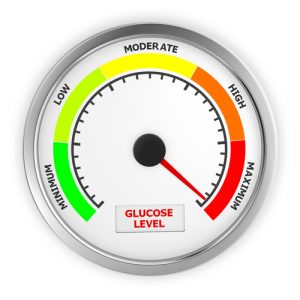If you’ve been diagnosed with PCOS (polycystic ovary syndrome), you may deal with a myriad of uncomfortable symptoms, rely on multiple medications and may have been told by your doctor that you’d likely never conceive. If you do get pregnant, doctors will tell you that you have a higher chance of miscarriage, gestational diabetes, preeclampsia and premature delivery.
But that was before.
Now, scientists have discovered a new way to improve the chances of conceiving, maintaining a viable pregnancy and managing PCOS, all with just one medication. It’s called inositol.
What are Inositols?
We used to think of inositols as members of the B-vitamin family. In fact, they are technically neither vitamins nor minerals, but natural substances with the same molecular function as glucose. They’re found widely in nature, most commonly in fruit, beans and the human body. The most common forms are myo-inositol (MI) and D-chiro-inositol (DCI).
How do Inositols Work?
In order to understand how they work, it’s important to understand how insulin works. Insulin is a hormone that helps your body convert food to energy and regulates your blood sugar. It’s secreted by your pancreas during digestion. When you eat a carbohydrate-rich food, such as an apple, that food is broken down into glucose in your digestive tract and enters the bloodstream via the lining in your small intestine. Insulin tells cells throughout your body to absorb the glucose and use it for energy.
 If you have too much glucose in your bloodstream, it’s insulin that tells your body to store the excess in your liver, for when you’ll need it again.
If you have too much glucose in your bloodstream, it’s insulin that tells your body to store the excess in your liver, for when you’ll need it again.
In the case of PCOS, the body has become insulin resistant and no longer recognizes when the pancreas is pumping out insulin cells to manage the glucose. Your pancreas continues to produce more insulin, and the excess insulin leads to increased androgen levels. The androgens encourage more free fatty acids in the bloodstream, which further reduces insulin sensitivity. When your body is unable to properly use glucose, it negatively affects your metabolism, leading to rapid weight gain, effectively increasing insulin resistance and raising the chances of developing type 2 diabetes.
In several clinical trials, MI and DCI have been observed to decrease blood pressure, improve insulin resistance, balance chemicals in the brain related to depression and OCD, reduce androgen levels, and improve ovarian function in overweight and obese women with PCOS.
MI and DCI have different biological functions, so they’re most effective when taken together. DCI can reduce lipid and insulin levels and lower blood pressure, while MI can improve the quality of your eggs and increase your chances of conceiving and delivering a healthy baby.
In a study featuring 50 obese women, a combination of 550 mg MI and 13.6 mg DCI was administered twice daily, orally, for six months. The subjects experienced improved skin, improved metabolic function and more regular ovulation.
Another study featuring 100 women showed that a combination of MI and DCI improved egg quality and pregnancy rates during IVF.
In a third study featuring PCOS patients undergoing IVF, patients were pretreated with 4 g of MI and 800 mg of folic acid daily. These women required less follicle-stimulating hormone and also saw improved pregnancy rates.
Are They Safe?
Inositols are generally considered safe for adults, including pregnant women. There are a few rare side effects that can occur, including nausea, stomach pain, tiredness, headache and dizziness.
If you’re looking for a more streamlined way to manage PCOS, or you’re trying to conceive, talk to your doctor about inositols.





